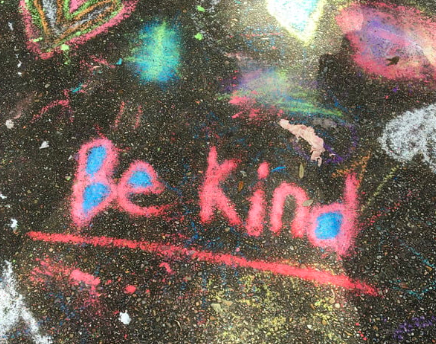Instilling kindness in our children becomes a cornerstone for fostering empathy and compassion. Teaching kids the value of kindness not only contributes to their personal growth but also creates a positive ripple effect in their communities. Here’s a guide on how children can practice kindness in their everyday lives.
Lead by Example
Children are keen observers, and they often model their behavior after the significant adults in their lives. Demonstrate kindness through your own actions – whether it’s helping a neighbor, expressing gratitude, or simply being patient. Your behavior sets the stage for the values your child will embrace!
Encourage Thoughtful Gestures
Kindness doesn’t always require grand gestures. Encourage children to engage in small acts of kindness, such as sharing toys, helping a classmate with their homework, or offering a friendly smile to someone who may be feeling down. These simple actions cultivate a habit of thoughtfulness and consideration.
Practice Empathy
Help children understand and share the feelings of others by teaching them empathy. Discuss different perspectives, read books that explore diverse experiences, and encourage open conversations about emotions. When kids can relate to others’ feelings, they are more likely to approach situations with kindness and understanding.
Create a Kindness Jar
Start a family tradition by creating a kindness jar. Whenever a family member witnesses an act of kindness, whether it’s from the child or someone else, they can write it down on a slip of paper and place it in the jar. This not only reinforces positive behavior but also serves as a visual reminder of the kindness present in their lives.
Volunteer Together
Engage in community service or volunteer activities as a family. This hands-on experience allows children to see the impact of their actions on others. Whether it’s participating in a neighborhood clean-up, volunteering at a local shelter, or helping with a community event, kids will learn the value of giving back.
Celebrate Differences
Kindness extends to embracing diversity. Teach children that everyone is unique and that differences should be celebrated. Encourage them to be inclusive, make friends with those who may be different from them, and appreciate the richness that diversity brings to their lives.
Be Mindful of Words
Kindness isn’t just about actions; it also involves the words we choose. Teach children the power of positive language and the impact it can have on others. Encourage them to use words that uplift, inspire, and support their peers.
Express Gratitude
Help children develop an attitude of gratitude by regularly expressing thanks for the people and things in their lives. Encourage them to write thank-you notes, create drawings, or simply verbalize their appreciation. Gratitude fosters a sense of kindness and acknowledgment of the good in the world.
Teaching children about kindness is a gift that keeps on giving. By instilling these values early on, we empower the next generation to contribute positively to their communities and create a world where kindness is a guiding principle. Cultivating kindness is not only beneficial for the individual child but also for the collective well-being of society as a whole. At Lake Forrest Prep, we know the power of kindness — and character education as a whole!


